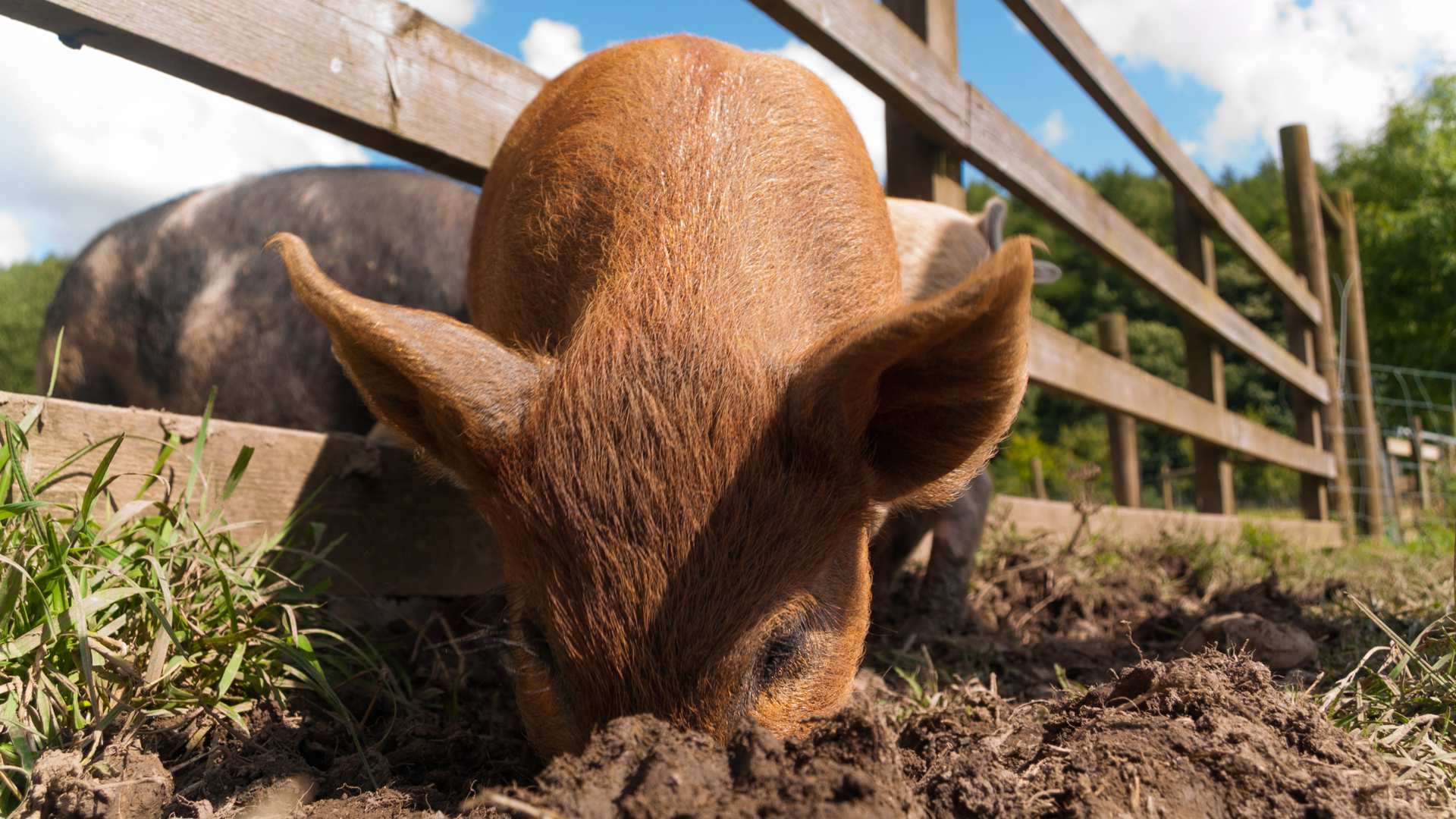During the warmer summer months worm infections become more common, lungworm is a roundworm similar to the worms that can infect the gut. However, the common pig lungworm (Metastrongylus Apri) has a really interesting lifecycle – that it is it requires earthworms in the soil to complete its lifecycle. Therefore, it is much more common in pigs kept outdoors at grazing and it is important to watch out for signs of coughing, increased respiratory effort, lethargy and weight loss in such groups.
The lifecycle begins when adult worms lay their eggs:
- Adult worms in the lungs of the pig lay eggs which are coughed up and swallowed
- These eggs are passed out in faeces onto the pasture and hatch into larvae
- Earthworms ingest the larvae (which may survive for some time in the soil prior to this happening)
- As foragers, pigs then eat the earthworms whilst rooting in the soil
- The larvae are carried in the earthworm to the pig's gut, from here they migrate to the lungs and grow into adults
So the larvae can survive inside the soil or earthworm for some time – this means that the pasture is infected and when you bring in pigs they can become infected despite not having contact with pigs who may have lived there months ago.
Alternatively, you may never have had lungworm in you pigs and the soil and earthworms are not infected – but then new pigs with an active lungworm infection, bring the worms to your pasture and earthworms!
You can check your pigs for lungworm using a test on faeces, but they may have adults growing in their lungs causing coughing, prior to excretion of eggs in faeces and so we may have to test twice, 2-3 weeks apart to find them.
Infected pigs can be treated with a wormer, however they may also develop secondary pneumonia and need anti biotics and anti inflammatories too.
If lungworm is diagnosed in your pigs then it is important to develop a plan with your vet to manage this disease throughout the year, and also for future additions to your smallholding, to ensure they have the best chance of staying healthy.
